43 organic food standards and labels the facts
Organic Food - FoodFacts Foods made with 70 - 95% organic ingredients can be labeled as "made with organic…" naming the specific ingredients that comply. This claim can be made on the front of the packaging food containing less than 70% organic ingredients may list specific organically produced ingredients on the side of the packaging, but not on the front panel Organic Food: Fact vs. Perception | American Heart Association CPR ... Organic food costs more and is generally harder to find than conventionally grown food &mdash. ... Organic products are subject to the same USDA safety standards as all other food products. The USDA has three categories for labeling organic products: "100 percent organic" for products made with 100 percent organic ingredients; "Organic ...
Organic Labeling | NSF

Organic food standards and labels the facts
Organic food - Wikipedia Organic food production is distinct from private gardening.In the EU, organic farming and organic food are more commonly known as ecological or biological, or in short 'eco' and 'bio'. Currently, the European Union, the United States, Canada, Japan, and many other countries require producers to obtain special certification based on government-defined standards in … 5 Facts You Should Know Before You Buy Organic Here are the 5 facts you should probably know before you buy organic… 1. Marketing usually tends to skimp on the facts and most particularly good science. Organic food is no exception. Take it from Bill Clinton's Agriculture Secretary: organic labels are a marketing tool that have nothing to do with food safety. National Organic Program | Agricultural Marketing Service NOP also accredits third-party organizations to certify that farms and businesses meet the national organic standards. These certifiers and USDA work together to enforce the standards, ensuring a level playing field for producers and protecting consumer confidence in the integrity of the USDA Organic Seal .
Organic food standards and labels the facts. Organic Food Statistics About the 2020 Market (Infographic) Jan 02, 2020 · 5. Understanding the meaning behind different organic labels is crucial. (FamilyDoctor) Before you switch, remember one of the most important facts about organic food: know your labels. “100% organic” means the food has been grown and processed using FDA-approved methods and ingredients. Organic food and farming: scientific facts and consumer perceptions 1. Introduction. Organic farming in the EU is a system of agriculture and food production that combines favourable environmental and animal welfare standards and is supported by EU law (Regulations (EC) No 834/2007 (1) and 889/2008/EC (2)). The organic production system strives for minimal disruption of the natural equilibrium while ensuring ... Organic foods: Are they safer? More nutritious? - Mayo Clinic 22-04-2022 · The USDA guidelines describe organic foods on product labels as:. 100% organic. This label is used on certified organic fruits, vegetables, eggs, meat or other foods that have one ingredient. It may also be used on food items with many ingredients if all the items are certified organic, except for salt and water. Organic Foods | Food and Nutrition Information Center - USDA Organic Food Standards and Labels: The Facts. University of Wisconsin Cooperative Extension. Explains what the organic label means on foods and how to identify organic foods in the grocery store.
50 Interesting Organic Food Facts | FactRetriever.com Organic food labeling standards are based on the percentage of organic ingredients in a product. Products labeled "100% organic" must contain only organically produced ingredients. Products labeled "organic" must contain at least 95% organically produced ingredients. What do you Know About Organic Foods? - IFT.org The term organic reflects how a food is produced and processed, not the nutritional make-up of a food. There is a prevailing belief that organic food products are somehow healthier, or better for you, than non-organic or "conventional" products. Recent research, including a 2012 Stanford University study, has confirmed that organic foods ... Organic - world.openfoodfacts.org Organic food is food produced by methods complying with the standards of organic farming and features practices that cycle resources, promote ecological balance, and conserve biodiversity. Products that have the label Organic 145,193 products Recently modified products Explore products by... Pages: 1 2 3 4 … 1450 1451 1452 Next Understanding the USDA Organic Label Organic products imported to the U.S. must comply with the USDA organic regulations or be certified to an equivalent international standard, meet U.S. labeling requirements, and maintain organic integrity during the import process. If your product is not certified to one of these standards, you must not make any organic claim on the principal display panel or use the USDA organic seal anywhere on the package.
Organic vs. Non-Organic Food Facts - Connected Women Organic-Must-Buy. The Environmental Working Group says that 99% of apples, 98% of peaches and 97% of nectarines are all positive for at least one pesticide residue. Most of all non-organic grapes and bell peppers tested positive for 15 different pesticides while cherry tomatoes, snap peas and strawberries showed 13 different pesticides. Organic on Food Labels | FDA 07-03-2022 · For more information on the use of the term “organic” on food labels and USDA requirements, go to the National Organic Program website. Content current as of: 03/07/2022 Organic Production/Organic Food: Information Access Tools Organic food is produced without using most conventional pesticides; fertilizers made with synthetic ingredients or sewage sludge; bioengineering; or ionizing radiation. Before a product can be labeled 'organic,' a Government-approved certifier inspects the farm where the food is grown to make sure the farmer is following all the rules necessary to meet USDA organic standards. Companies that handle or process organic food before it gets to your local supermarket or restaurant must be ... Meat and Poultry Labeling Terms | Food Safety and Inspection Service FSIS is the agency responsible for ensuring the truthfulness and accuracy in labeling of meat and poultry products. Knowing the meaning of labeling terms can make purchasing of meat and poultry products less confusing. BASTED or SELF BASTED CERTIFIED CHEMICAL FREE FREE RANGE or FREE ROAMING FRESH POULTRY FROZEN POULTRY FRYER-ROASTER TURKEY
24 Organic Food Statistics & Facts for a Much Healthier 2022 5.7% of food sold in America is organic, according to facts about organic food. 83% of US citizens will opt for organic, while the number of organic food proponents was 30% six years earlier. 62% of US consumers would purchase organic if it were more affordable. Millennials with children are the most likely to spend money on organic food.
Labeling Organic Products | Agricultural Marketing Service All instances of specific fibers in finished product are certified organic: label may claim the specific fibers are organic and identify the percentage of organic fibers; Global Organic Textile Standard (GOTS): textiles that meet this standard may be sold as organic in the United States. Textiles: Unless the finished product is certified to the USDA organic regulations, product labels may not state or imply that the finished product is USDA organic or use the USDA organic seal.
All About Organic Foods | Food Safety and Health · We share the relevant. You must look at package labels and watch for signs in the supermarket. Along with the national organic standards, USDA developed strict labeling rules to help consumers know the exact organic content of the food they buy. The USDA Organic seal also tells you that a product is at least 95 percent organic. Single-ingredient foods
Natural vs organic foods: Understanding the basic differences 21-07-2022 · Over the past few decades, the organic and natural food market has grown significantly with distinct production, processing, distribution, and retail systems. You can find a hint of ‘organic’ in everything today — from food to skincare. But, before you buy anything, it is imperative to know what organic and natural mean. Also, if ‘natural food’ has the same safety …
What Does Organic Mean? The Facts about Organic Food Standards and Labels Only food labeled "organic" has been certified as meeting USDA organic standards. For more detailed information on the USDA organic standards, visit the USDA National Organic Program website. or call the National Organic Program at 202-720-3252, or write USDA-AMS-TM-NOP, Room 4008 S. Bldg., Ag Stop 0268, 1400 Independence, SW, Washington, DC 20250.
Organic 101: What the USDA Organic Label Means | USDA 13-03-2019 · This is the third installment of the Organic 101 series that explores different aspects of the USDA organic regulations. Amidst nutrition facts, ingredients lists, and dietary claims on food packages, “organic” might appear as one more piece of information to decipher when shopping for foods. So understanding what “organic” really means can help shoppers make …
Organic foods: Are they safer? More nutritious? - Mayo Clinic Apr 22, 2022 · Also be careful not to mix up other common food labels with organic labels. For example, certified organic beef guidelines include pasture access during at least 120 days of grazing season and no growth hormones. But the labels "free-range" or "hormone-free" don't mean a farmer followed all guidelines for organic certification.
11 Facts About Organic Food | DoSomething.org Industry analysts estimate that US organic food sales were $28 billion in 2012 (over 4 percent of total at-home food sales), up 11 percent from 2011. [6] Products labeled "organic" may reflect higher prices because the production process is often on a smaller scale with more labor- and management-intensive practices and stricter regulations.

Is organic food that you eat free of synthetic pesticides & chemical fertilisers? - The Economic ...
Organic food: labelling and advertising rules - GOV.UK When you can label your product as 'organic' You can only label foods as 'organic', or use terms relating to organic production methods, if: at least 95% of the product's agricultural ingredients...
Organic on Food Labels | FDA Organic on Food Labels FDA does not regulate the use of the term "organic" on food labels. The National Organic Program (NOP) is the federal regulatory framework governing organically produced...
National Organic Program | Agricultural Marketing Service NOP is a federal regulatory program that develops and enforces consistent national standards for organically produced agricultural products sold in the United States.. NOP also accredits third-party organizations to certify that farms and businesses meet the national organic standards.
Labeling Organic Products | Agricultural Marketing Service Honey, mushrooms, and pet food may be certified to current production and handling standards and must comply with labeling requirements for organic products certified under these standards. Talk to your certifier for details.
Who Buys Organic Food: Different Types of Consumers 20-11-2019 · The American Academy of Pediatrics (AAP) released their findings in 2012 on how organic food benefits young children. However, parents have been fans of organic food for years, even before the AAP gave organics a thumbs up. The most recent reports show that U.S. families are increasingly embracing organics in a wide range of categories.
Is Organic Food Really Better for the Environment? 22-10-2019 · To eat organic or not to eat organic. In the U.S., even sustainability experts continue to be unsure of whether food items like fruits and vegetables with the “certified organic” labels are in fact, genuinely organic or not. McDermid said that even she sometimes feels uncertain about what to buy in the supermarket.
Organic Food: False Labeling Is Not Uncommon | National Review Most alarming is the importation of allegedly organic grains from Ukraine, Turkey, India, and China, countries with uncertain food-safety standards, to use as animal feed. Any organic meat or ...
Organic Food Standards and Labels: The Facts - MedicineNet Only food labeled "organic" has been certified as meeting USDA organic standards. For more detailed information on the USDA organic standards, visit our web site at , call the National Organic Program at 202-720-3252, or write USDA-AMS-TM-NOP, Room 4008 S. Bldg., Ag Stop 0268, 1400 Independence, SW, Washington, DC 20250.
Organic Food Statistics About the 2020 Market (Infographic) 02-01-2020 · 5. Understanding the meaning behind different organic labels is crucial. (FamilyDoctor) Before you switch, remember one of the most important facts about organic food: know your labels. “100% organic” means the food has been grown and processed using FDA-approved methods and ingredients.
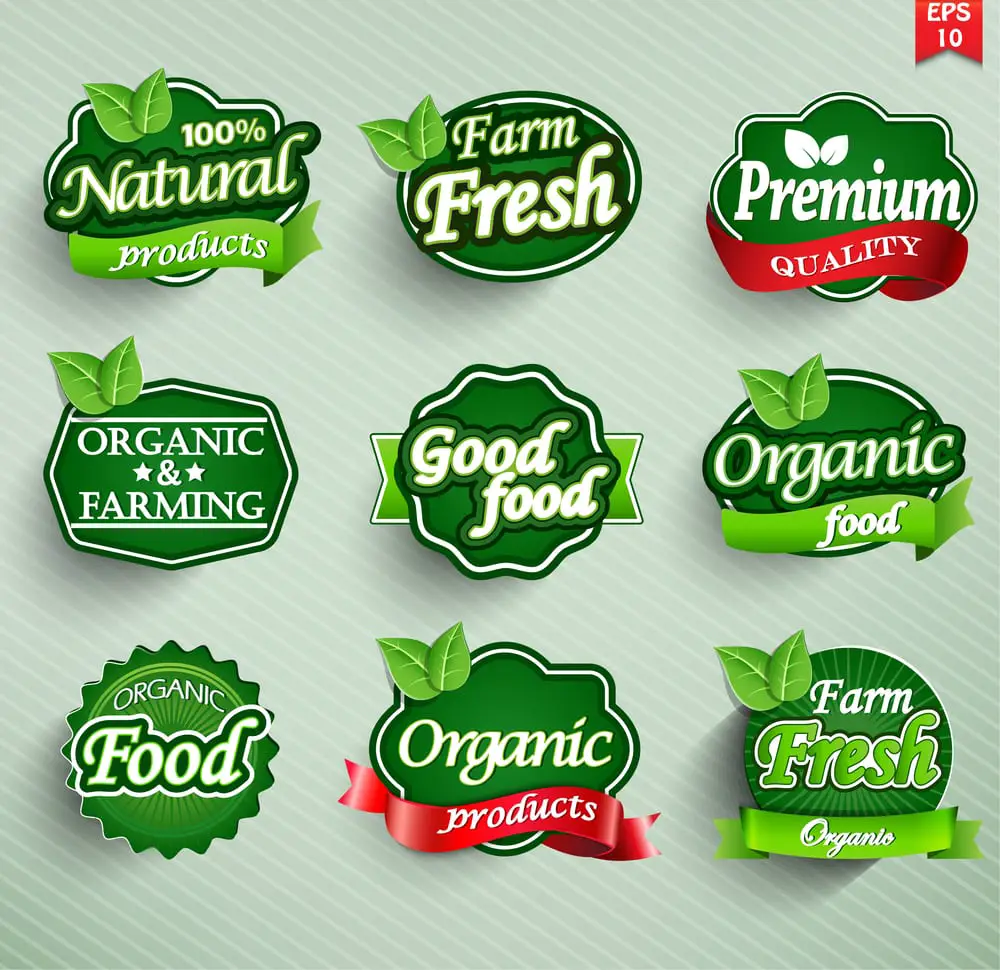


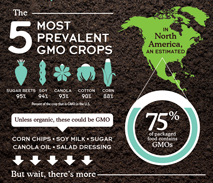

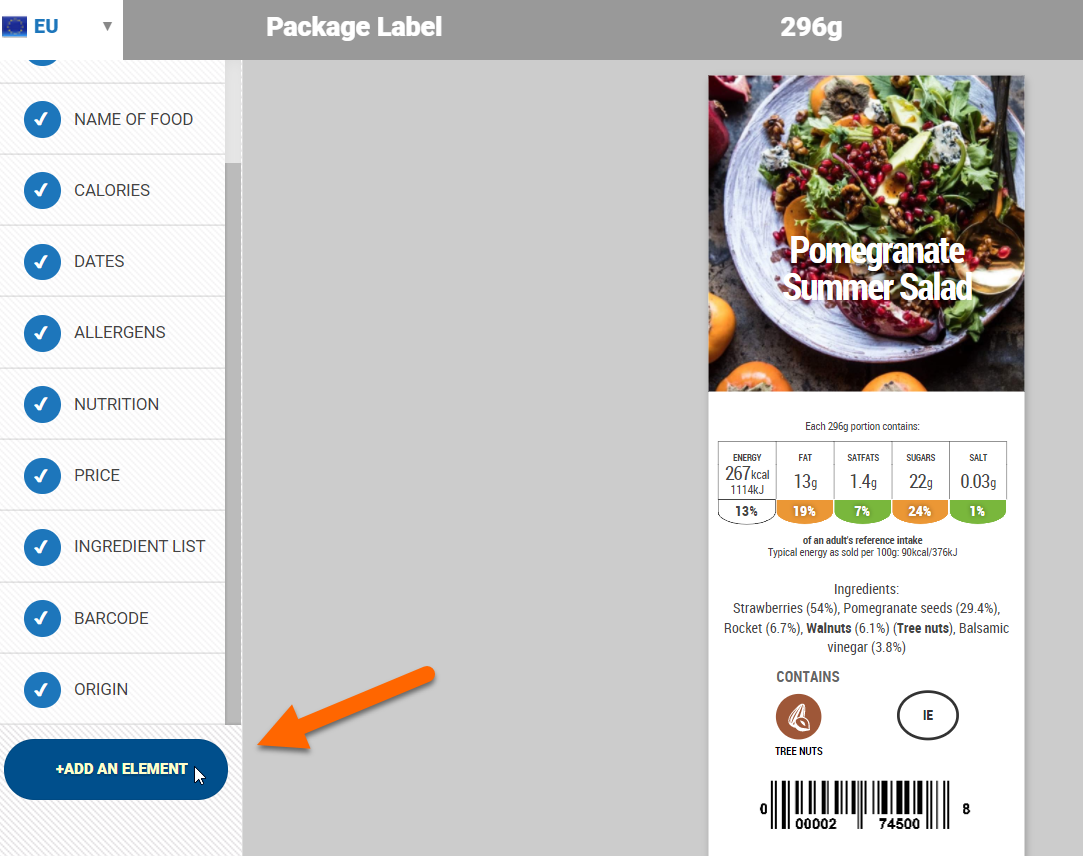




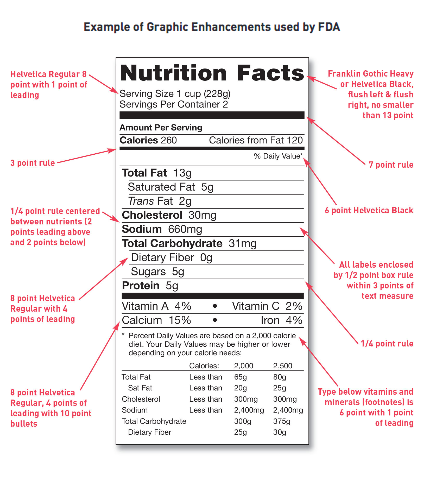

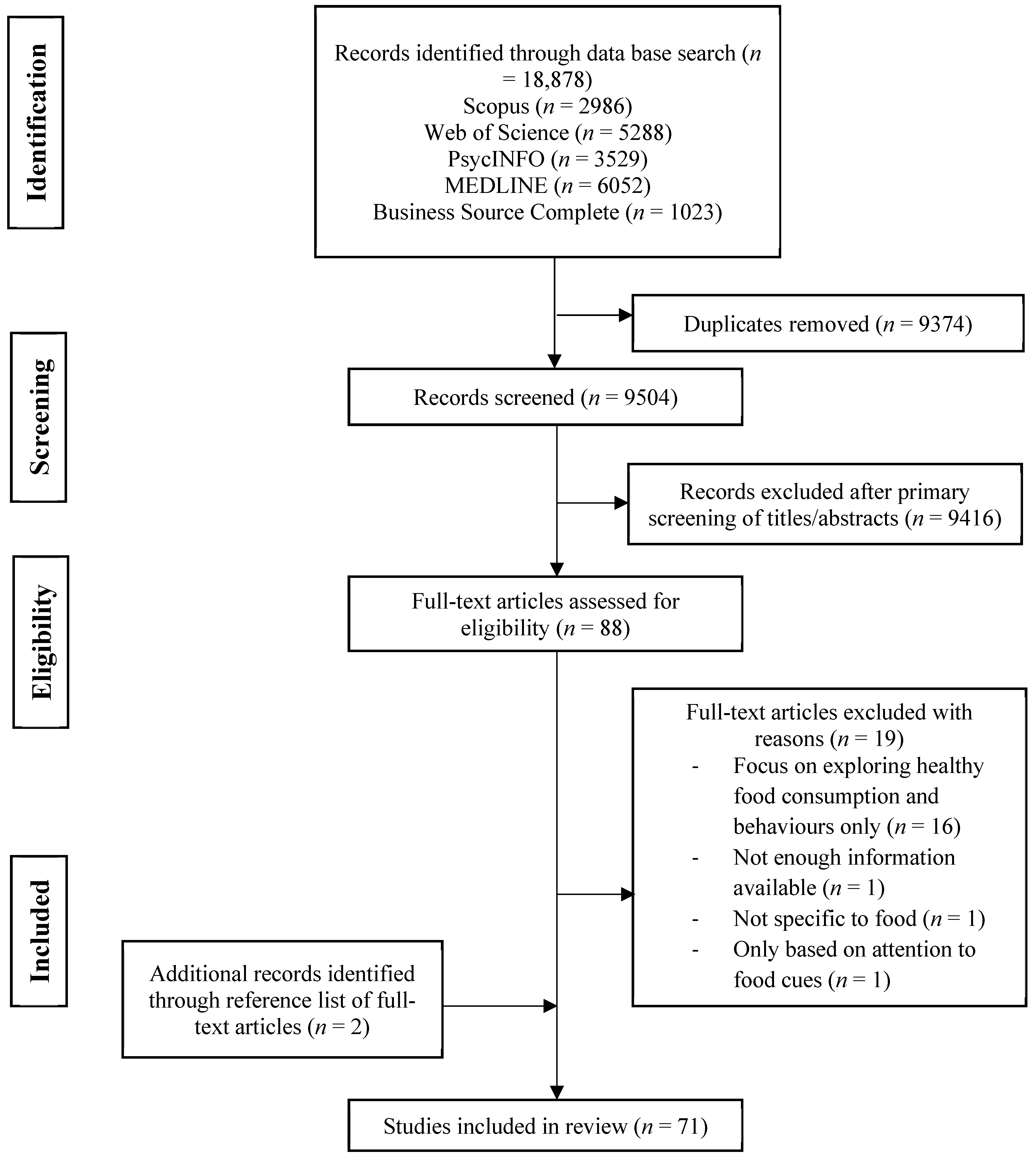

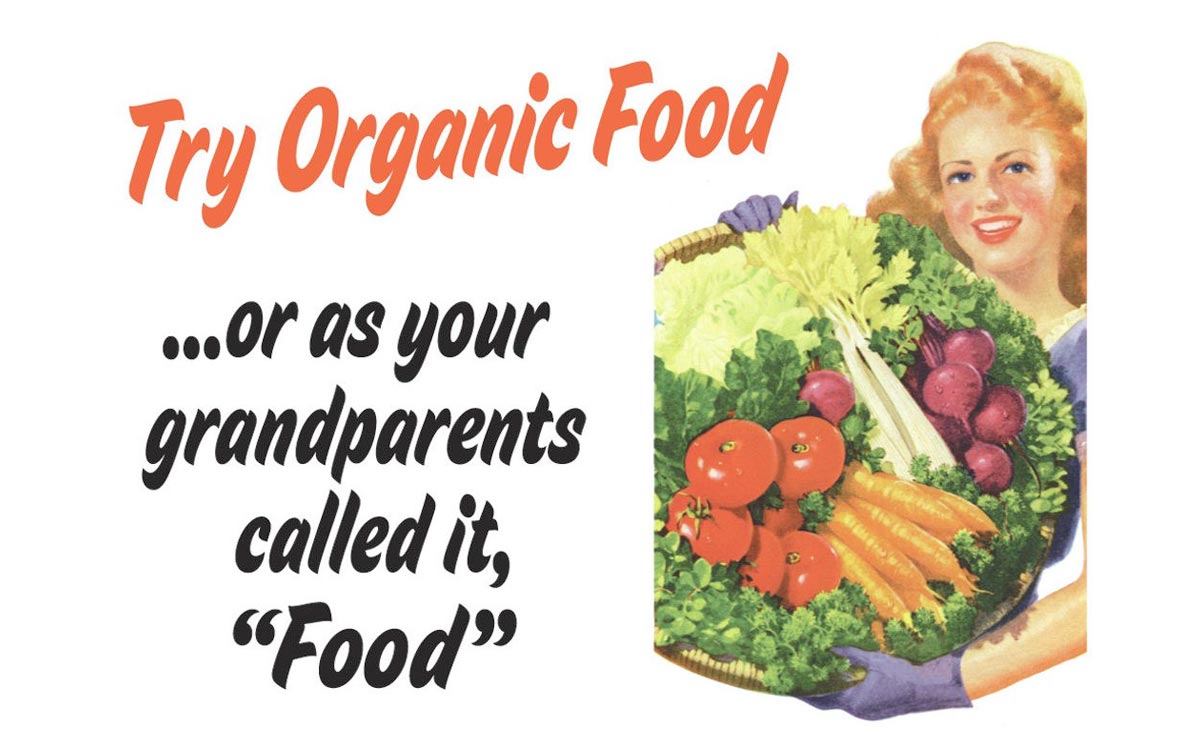
Post a Comment for "43 organic food standards and labels the facts"